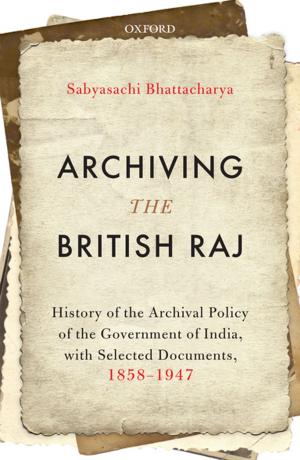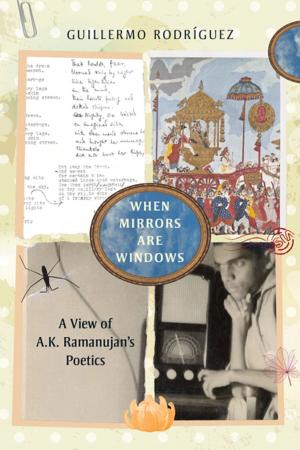Violence, Martyrdom and Partition
A Daughter’s Testimony
Nonfiction, History, Asian, India, Social & Cultural Studies, Social Science, Discrimination & Race Relations, Anthropology| Author: | Nonica Datta | ISBN: | 9780199088041 |
| Publisher: | OUP India | Publication: | February 18, 2009 |
| Imprint: | OUP India | Language: | English |
| Author: | Nonica Datta |
| ISBN: | 9780199088041 |
| Publisher: | OUP India |
| Publication: | February 18, 2009 |
| Imprint: | OUP India |
| Language: | English |
This book presents the oral testimony of Subhashini (1914–2003), the woman head of a well-known Arya Samaj institution devoted to women's education in rural north India. Subhashini's narrative unfolds a story, within a sea of stories, which has remained silent in the dominant historical discourse. Her memory evokes contrasting images of violence, martyrdom and Partition. Not 1947 but 1942—the year of her father's 'martyrdom'—is recalled as a violent rupture in her memory. Partition is a moment of celebration, revenge, divine retribution, empathy, remorse, tragedy and fear. Translating Subhashini's oral testimony, Nonica Datta recreates the memory of a colonial subject, living in postcolonial times, as a historical narrative. Moving beyond a historical event and well-established historical facts, Violence, Martyrdom and Partition is a parallel history of events and non-events, memory and history, testimony and experience. Breaking the silence of an oral testimony and presenting memory as history, this work opens up the historians' territory. This testimony defies the opposition between subject and agent, victim and victimizer, witness and survivor, aggressor and spectator, perpetrator and bystander. Subhashini's candid, repetitive narrative suggests a remarkable interplay of individual and collective remembrance, and reveals the shifts, ambiguities, silences and contradictions in an individual memory.
This book presents the oral testimony of Subhashini (1914–2003), the woman head of a well-known Arya Samaj institution devoted to women's education in rural north India. Subhashini's narrative unfolds a story, within a sea of stories, which has remained silent in the dominant historical discourse. Her memory evokes contrasting images of violence, martyrdom and Partition. Not 1947 but 1942—the year of her father's 'martyrdom'—is recalled as a violent rupture in her memory. Partition is a moment of celebration, revenge, divine retribution, empathy, remorse, tragedy and fear. Translating Subhashini's oral testimony, Nonica Datta recreates the memory of a colonial subject, living in postcolonial times, as a historical narrative. Moving beyond a historical event and well-established historical facts, Violence, Martyrdom and Partition is a parallel history of events and non-events, memory and history, testimony and experience. Breaking the silence of an oral testimony and presenting memory as history, this work opens up the historians' territory. This testimony defies the opposition between subject and agent, victim and victimizer, witness and survivor, aggressor and spectator, perpetrator and bystander. Subhashini's candid, repetitive narrative suggests a remarkable interplay of individual and collective remembrance, and reveals the shifts, ambiguities, silences and contradictions in an individual memory.















